

Tao Te Ching
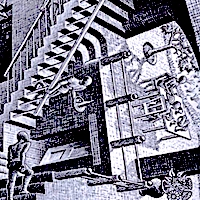
Paradox
Suzuki Roshi said that, “If it’s not a paradox, it’s not the truth” and the Taoist symbol of yin-yang symbolizes the dual nature of our experience. There’s always a dark side to the most positive situation in the same way as there is always a “silver lining” to our problems and tribulations. The Jain tradition takes this notion even further positing 7 aspects to each experience instead of two. Gracian’s aphorism that “All fools are fully convinced, and everyone fully convinced is a fool” brings this understanding into the practicality of our lives. Humans seem plagued with many contradictory desires. Chief among them may be the desire for stability, peace, and comfort of the known and traditional juxtaposed with the desire for things to get better, to evolve and improve, the desire for progress. While most acknowledge and approve of both, few may realize the inherent and obvious but unacknowledged contradiction: things can’t get better without changing. This could also describe how the root cause of our political woes may lie deeper than merely the surface of our polarized, chauvinistic “tribalism.” The deeper cause is Our polarized thinking based on unconscious beliefs that we can condense reality into tiny, conceptualized boxes—right and wrong, good and bad, should and shouldn’t. A sane political system grows from open, rational mind and is fertilized by composting dogmatic belief with the psychological microbe, paradox.
Quotes (141)
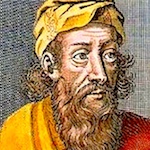
“The oldest, shortest words - 'yes' and 'no' - are those which require the most thought.”

“Although sentient beings are innumerable, we vow to save them all.
Although our evil desires are limitless, we vow to be rid of them.
Although the teaching is limitless, we vow to learn it all.
Although Buddhism is unattainable, we vow to attain it.”
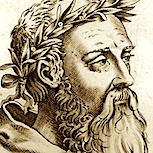
“Men do not know how what is at variance agrees with itself. It is an attunement of opposite tensions, like that of the bow and the lyre.”
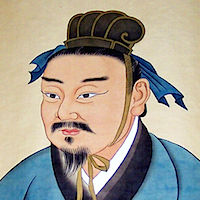
“Perfect truthfulness though unmoving, creates change; though taking no action, brings about completion; though making no display, becomes manifest.”
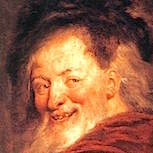
“One man means as much to me as a multitude, and a multitude only as much as one man.”
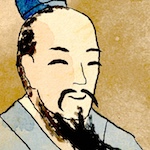
“When we understand we are at the center of the circle, and there we sit while Yes and No chase each other around the circumference.”
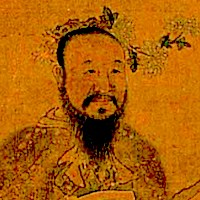
“Now, the phoenix dispossessed,
In the shrine crows make their nest.
Withered is the jasmine rare,
Fair is foul, and foul is fair,
Light is darkness, darkness day,
Sad at heart I haste away.”
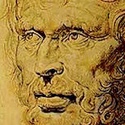
“The philosopher may arrive at more than one explanation for a given phenomenon—in some cases, even at explanations that are mutually exclusive or contradictory.”
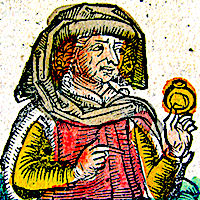
“I am dragged along by a strange new force. Desire and reason are pulling in different directions. I see the right way and approve it, but follow the wrong.”

“The true Tao exists and yet does not exist. It does not exist and it does not not exist… Outside of the Tao, there are no things. And outside of things, there is no Tao.”
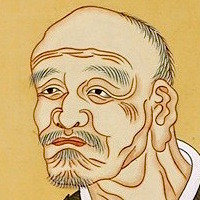
“Realizing the unreality of opposites and the non-existence of relatives like good/bad, love/hate, happy/sad brings deliverance and the wisdom of knowing what to accept and what to reject.”
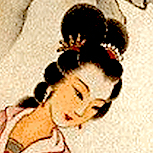
“What is not alive is the basis for life. By equating life and death, we are no longer burdened by life and death.”
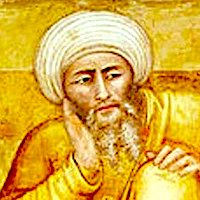
“Double meanings are given to suit people's diverse intelligence. The apparent contradictions are meant to stimulate the learned to deeper study.”
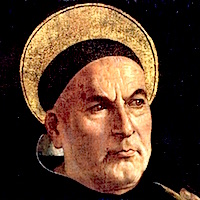
“This is true which is, therefore contradictions can be true at the same time since they seem to be true as seen by different persons at the same time.”
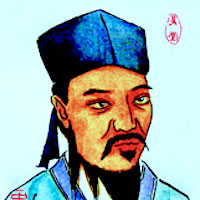
“To treat the complete as complete, the full as full, the straight as straight, and the clever as clever is mundane. To treat what seems deficient as complete, what seems empty as full, what seems crooked as straight, what seems clumsy as clever, this is transcendent.”

“Those who plant something well, plant it without planting. Thus it is never uprooted. Those who hold something well, hold it without holding. Thus it is never taken away.”
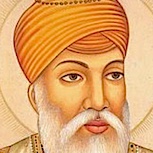
“All know that the drop merges into the ocean but few know that the ocean merges into the drop.”
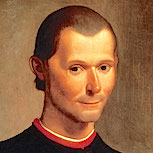
“Monarchies quickly becomes Tyrannies, Aristocracies Oligarchies, Democracies degenerate into Anarchy… no precaution can prevent them from sliding into their opposites because of how closely the virtue resembles the vice.”

“Valor produces peace; peace, repose; repose, disorder; disorder, ruin. From disorder, order springs; from order, valor (virtue).”

“Always choose the lesser evil never imagining that you can decide on a perfectly safe course. You can never avoid one trouble without running into another one.”
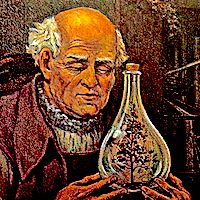
“Poison is in everything, and no thing is without poison. Only the dosage makes it either a poison or a remedy.”
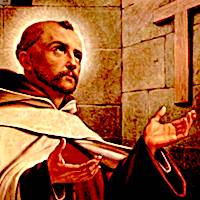
“If someone wishes to be sure of the road they’re traveling on, they must close their eyes and travel in the dark.”
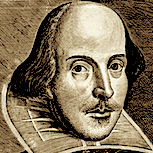
“Good without evil is like light with out darkness which in turn is like righteousness without hope.”

“The half is more than the whole, the reserve is more important that the attacking force.”
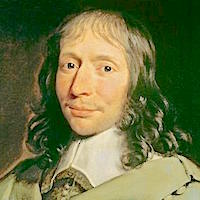
“What a chimera then is man! What a novelty, what a monster, what a chaos, what a contradiction, what a prodigy! Judge of all things, feeble earthworm, repository of truth, server of uncertainty and error, the glory and the scum of the universe.”
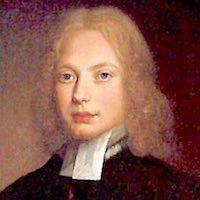
“If a man would register all his opinions upon love, politics, religion, learning, etc., beginning from his youth and so go on to old age, what a bundle of inconsistencies and contradictions would appear at last!”

“A few years' experience will convince us that those things which at the time they happened we regarded as our greatest misfortunes have proved our greatest blessings.”
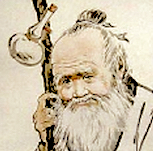
“Practice contemplation in action by combining flexibility with firmness, solidity with openness, and returning the nonexistent to existence.”
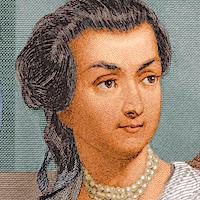
“I've always felt that a person's intelligence is directly reflected by the number of conflicting points of view he can entertain simultaneously on the same topic.”
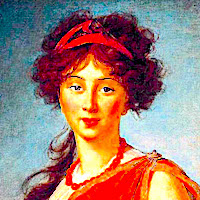
“A proposition expressed in numbers is definitely false or true. In all other relations, the truth is so mingled with the false that often only instinct can help us to decide among virtuous influences, sometimes equally as strong in one direction as in the other.”

“the difficulty is… that something can be both true and untrue at the same time… mankind cannot get on without a certain amount of absurdity.”
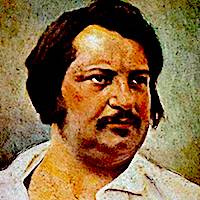
“The more he saw, the more he doubted… courage was often rashness; and prudence, cowardice; generosity, a clever piece of calculation; justice, a wrong; honesty, a modus vivendi; and by some strange dispensation of fate, he must see that those who at heart were really honest, scrupulous, just, generous, prudent or brave were held cheaply by their fellow-men.”
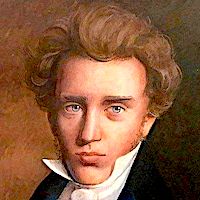
“Paradox is the source of the thinker's passion, and the thinker without a paradox is like a lover without feeling: a paltry mediocrity.”
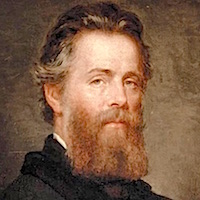 “For all men tragically great are made so through a certain morbidness.... all mortal greatness is but disease.”
“For all men tragically great are made so through a certain morbidness.... all mortal greatness is but disease.” 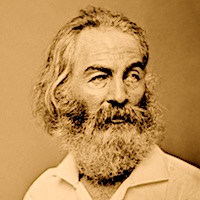
“Do I contradict myself? Very well then I contradict myself, (I am large, I contain multitudes.)”
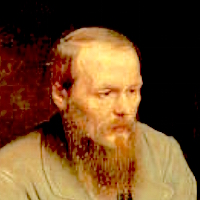
“The stupider one is, the closer to reality. Intelligence is a knave, it wriggles and hides but stupidity is honest and straight-forward.”
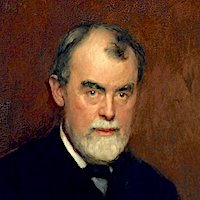
“Strange fat for man! He must perish if he get that which he must perish if he strive not after. If he strive not after it, he is not better than the brutes, if he get it he is more miserable than the devils.”
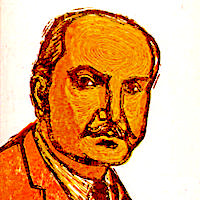
“Revolutions are ambiguous things. Their success is generally proportionate to their power of adaptation and to the reabsorption within them of what they rebelled against”
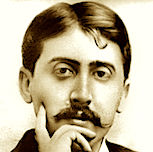
“It is always during a passing state of mind that we make lasting resolutions.”

“To believe in medicine would be the height of folly, if not to believe in it were not a greater folly still.”

“Kant, like Darwin, gave rise to a movement which he would have detested... The stages in the evolution of ideas have... developed by steps that each seem natural, into their opposites... governed throughout by external circumstances and the reflection of these circumstances in human emotions.”
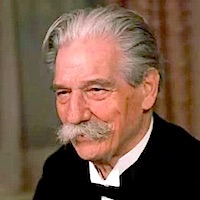
“The conquest of the air marked a decisive advance for humanity. Yet we grasped at once the opportunity it offered to kill and destroy from the skies…. and obliged us to seek refuge underground like a hunted animal… the more the superman gains in strength, the poorer he becomes… we are becoming inhuman to the extent that we become supermen.”

“Take your practiced powers and stretch them out until they span the chasm between two contradictions... For the god wants to know himself in you.”

“If you marry the ordered to the chaos you produce the divine child, the supreme meaning beyond meaning and meaninglessness.”
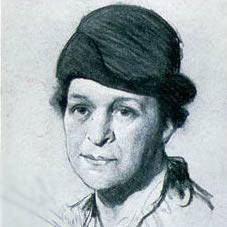
“All judgment is relative. It may be right today and wrong tomorrow. The only thing that makes it truly right is the desire to have it constantly moving in the right direction.”
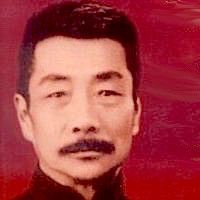
“Do not guard yourself against those who call themselves thieves, for when you find out the opposite, they turn out to be gentlemen. Guard yourself against those who call themselves gentlemen, for when you discover the opposite, they turn out to be thieves.”
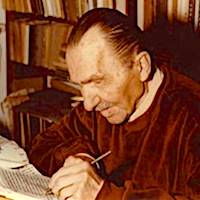
“whoever uproots his instincts uproots his strength—for with time, satiety, and discipline this dark matter may turn to spirit... if you wish to conquer temptation, there is only one way: embrace it, taste it, learn to despise it.”

“The most ignorant say that good and evil are enemies. Others rise one step higher and say that good and evil are allies. Still others, embracing the game of life and death upon this terrestrial crust with an all-encompassing glance, rejoice at the harmony and say: Good and evil are One.”

“A nation, like an individual, can be too sensible, too prosaically sane and unbearably right... an intellectual bureaucracy irksome and hostile to every free and creatively erring soul.”

“Perhaps our national vitality depends upon a continuing tension between youth and age, whereby innovation meets tradition, and the ardor of experiment fuses with the coolness of experience.”
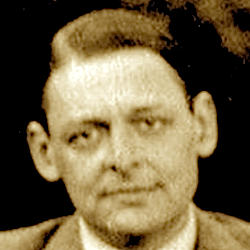 “Every experience is a paradox in that it means to be absolute, and yet is relative; in that it somehow always goes beyond itself and yet never escapes itself. ”
“Every experience is a paradox in that it means to be absolute, and yet is relative; in that it somehow always goes beyond itself and yet never escapes itself. ” 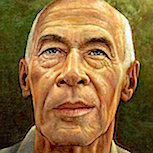
“In this age, which believes that there is a short-cut to everything, the greatest lesson to be learned is that the most difficult way, in the long run, is the easiest.”
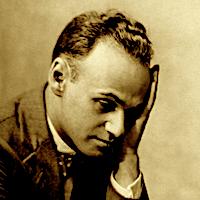
“the arts most useful to the public are essentially those which can be most effectively turned against the public good.”
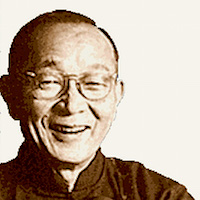
“The principle of leveling of all opposites, and the theory of cycles and universal reversion to opposites are basic for the understanding of Lao Tzu and Chuang Tzu philosophy and its practical teachings. All Lao Tzu's paradoxes arise from this point of view.”
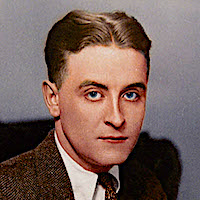
“the test of a first-rate intelligence is the ability to hold two opposed ideas in the mind at the same time, and still retain the ability to function.”
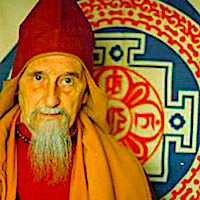
“We learn to desist from concentrating on what might be good for us in the short run; because, when we study underlying trends, we often find that what is good for us in the short run may be far from good in the long run.”
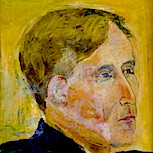
“By admitting the conception of goodness, you are simultaneously creating a conception of badness.”
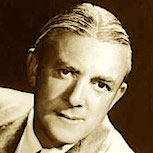
“If I could put it into a very few words, I should say that our prevalent belief is in moderation. We inculcate the virtue of avoiding excesses of all kinds—even including, if you will pardon the paradox, excess of virtue itself.”
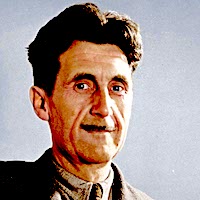
“Until they become conscious they will never rebel, and until after they have rebelled they cannot become conscious.”

“When human beings are governed by 'thou shalt not,' the individual can practice a certain amount of eccentricity: when they are supposedly governed by 'love' or 'reason,' he is under continuous pressure to make him behave exactly the same way as everyone else.”

“To expect truth to come from thinking signifies that we mistake the need to think with the urge to know.”
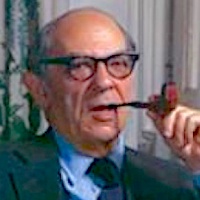
“Machiavelli... undermined my earlier assumption, based on the philosophia perennis, that there could be no conflict between true ends, true answers to the central problems of life.”

“The capacity to blunder slightly is the real marvel of DNA. Without this special attribute, we would still be anaerobic bacteria and there would be no music.”
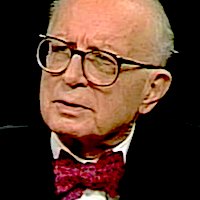
“The progress of man... depends largely on his ability to accept superficial paradoxes, to see that what at first looks like a contradiction need not always remain one.”
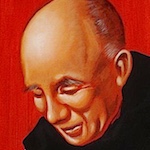
“Chuang Tzu agrees with the paradox of Lao Tzu, ‘When all the world recognizes good as good, it becomes evil’ because it becomes something that one does not have and which one must constantly be pursuing until, in effect, it becomes unattainable.”
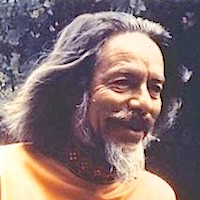
“one is a great deal less anxious if one feels perfectly free to be anxious”

“We live on the brink of disaster because we do not know how to let life alone. We do not respect the living and fruitful contradictions and paradoxes of which true life is full.”
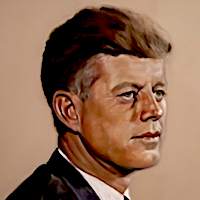
“The Chinese use two brush strokes to write the word 'crisis.' One brush stroke stands for danger; the other for opportunity. In a crisis, be aware of the danger—but recognize the opportunity.”
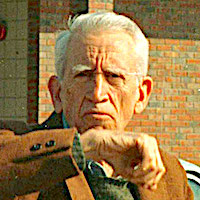
“The miracle of Chinese and Japanese verse is that one pure poet's voice is absolutely the same as another's and at once absolutely distinctive and different.”

“I'm quite illiterate, but I read a lot... What really knocks me out is a book that, when you're all done reading it, you wish the author that wrote it was a terrific friend of yours and you could call him up on the phone whenever you felt like it.”
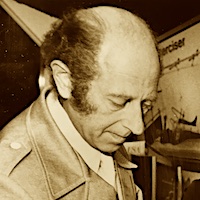
“It is the paradox of every poet to have to transcend the logical function of language through language... Because paradox is the principal mode of Lao Tzu's thought processes, it is the nature of Chinese language, especially ancient Chinese, to be poetic.”
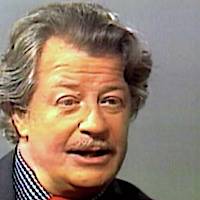
“How can a man be so brave and so stupid, so gentle and so cruel, so warming and so detestable — all at the same time?”

“Lao Tzu is… explaining a profound and difficult truth here, one of those counter-intuitive truths that, when the mind can accept them, suddenly double the size of the universe.”

“An innocent man is a sin before God. Inhuman and therefore untrustworthy. No man should live without absorbing the sins of his kind, the foul air of his innocence, even if it did wilt rows of angel trumpets and cause them to fall from their vines.”
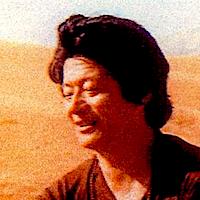
“So I had better fly in the ten directions even though I have lost the social custom and people call me aimless.
So I had better stay in one place even though I have lost the gypsy custom and people call me lazy.”
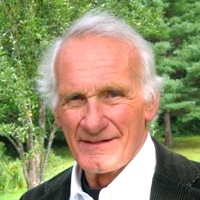
“by proving to the audience they were wrong, we prove to ourselves the audience was right”
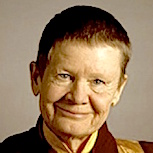
“We deserve our birthright, which is the middle way, an open state of mind that can relax with paradox and ambiguity.”
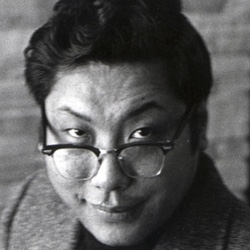
“If we try to solve society’s problems without overcoming the confusion and aggression in our own state of mind, then our efforts will only contribute to the basic problems.”
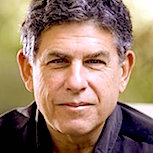
“There are paradoxes born of wit and paradoxes born of insight. No thought is true, but some thoughts are so much truer than the ones we're used to that they seem absurd”
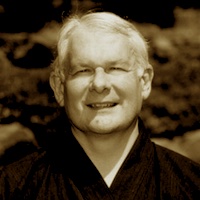
“Oblivious to the incongruities involved, temple artists used couples tenderly making love as decorative illustrations for stern sutras preaching total abstinence from sex.”
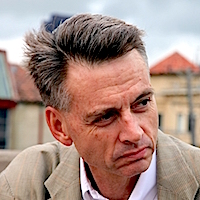
“giving men marriage tips is a little like offering Vikings a free booklet titled, 'How Not to Pillage.'”
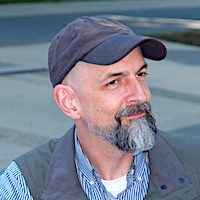
“The difference between stupid and intelligent people—and this is true whether or not they are well-educated—is that intelligent people can handle subtlety. They are not baffled by ambiguous or even contradictory situations—in fact, they expect them and are apt to become suspicious when things seem overly straightforward."”
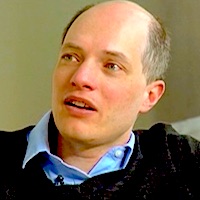
“It’s a huge psychological achievement to accept other humans in their bewildering mixture of good and bad… no one we love will ever satisfy us completely—but that this is never a reason to hate them either. We should move away from the naivety and cruelty of splitting people into the camps of the awful and the wondrous, to the mature wisdom of integrating them into the large collective of the ‘good enough’.”
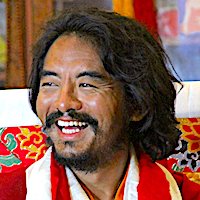
“This is the great paradox of the Buddhist path: that we practice in order to know what we already are, therefore attaining nothing, getting nothing, going nowhere. We seek to uncover what has always been there.”
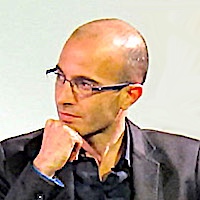
“a dramatic increase in the collective power and ostensible success of our species went hand in hand with much individual suffering... This discrepancy between evolutionary success and individual suffering is perhaps the most important lesson we can draw from the Agricultural Revolution.”
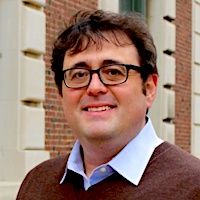
“The flood of Wells’s prose lifted him from the respectable poverty in which he was raised to wealth and international fame... The problem he set himself was how to combine that mission, his furious devotion to human progress, with a cool certainty that the end of all progress would be entropy, devolution, nullity. The way he lived this paradox, even more than his books, is what makes Wells, still, an exemplary modern man.”

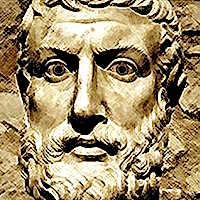
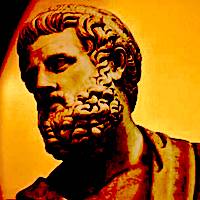
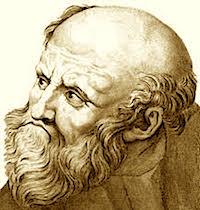
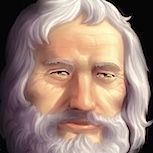
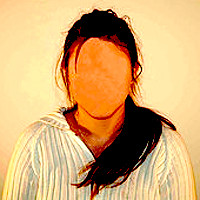

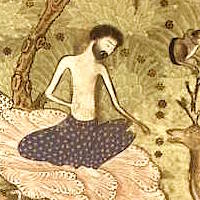
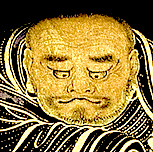

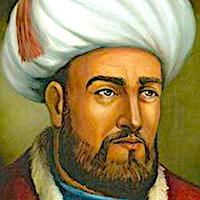
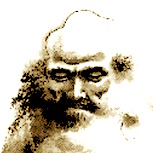
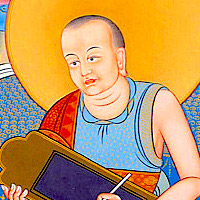

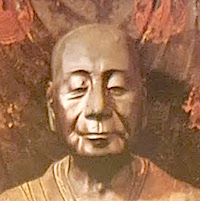
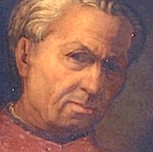


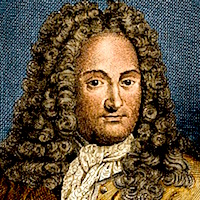
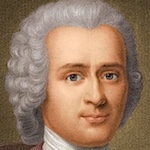
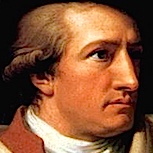

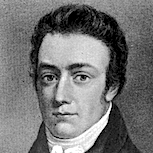
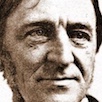

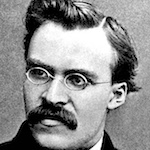
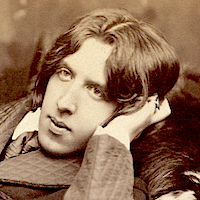
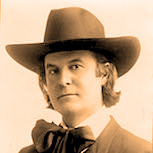
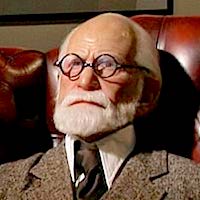
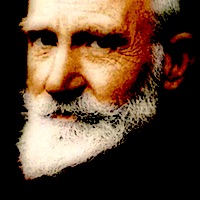
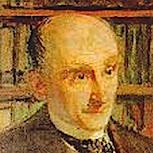
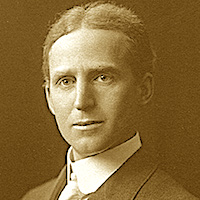

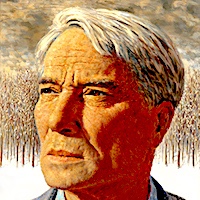
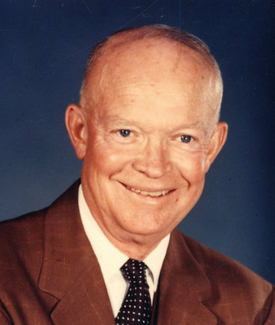
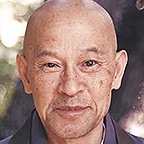
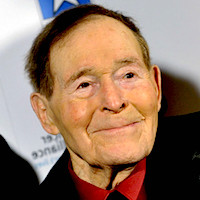
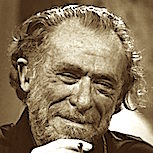
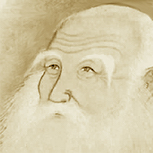
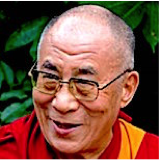

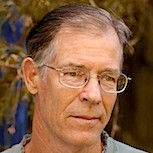
Comments (0)